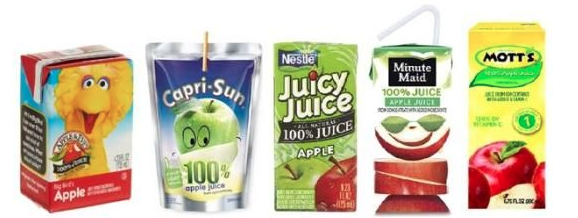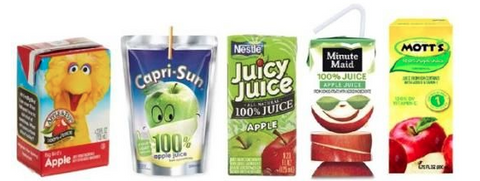
AAP: No More Juice for Toddlers
Erin Burt

If I had a dollar for every time my mother said, “Well I didn’t do it that way when you were a baby,” my daughter’s college fund would be well on its way. Things are changing all the time and what was once the norm in parenting can quickly become something on the parent no-no list.
The latest thing that my mother can puzzle over is the new recommendations from the American Academy of Pediatrics (AAP) concerning juice for children of all ages:
0 to 1 year: In the past, juice was considered OK after 6 months old but now it is recommended to avoid juice altogether in this first year and instead introduce whole fruits that have been mashed or pureed. In fact, juice during this time could stunt a child’s growth and can interfere with getting other important nutrients that are so vital this early on.
1 to 4 years: Children in this age range need 1 cup of fruit a day and the AAP states that 4 ounces of this serving can come from 100% fruit juice (4 oz is about the size of a Dixie cup for comparison). They make it clear to avoid the sugary fruit “drinks” and fruit “cocktails” with the oh so appealing packaging and take it a step further by saying to ditch the sippy cup as a child sipping from it throughout the day can cause cavities. Even the old diluting it with water trick is said to still cause cavities. Instead they recommend an open top cup at meal or snack time.
4 to 6 years: At this age, juice consumption shouldn’t exceed 4 to 6 ounces a day. Children tend to consume a lot of those artificial fruit drinks but they, along with too much 100% fruit juice, can contribute to energy imbalance or obesity. They are also prone to filling up on juice and then not getting enough beneficial calories at meals.
7 to 18 years: Older kids should be getting 2 to 2 ½ cups of fruit serving a day, and still fruit juice is limited to only one of those servings (8 ounces). It’s also time to be diligent about what is going into your kid’s lunch and avoid gummy fruit snacks or fruit chews as they are not necessarily fruit.
Juice is marketed as a healthy beverage, but that is not necessarily the case. The overarching theme here is to avoid the artificial fruit and fruit flavors and go back to basics by replacing it with whole fruits, which provide more nutrients than juice. Add some fresh strawberries and banana to oatmeal in the morning. Pack blueberries as a snack for their lunch. Another way to get them to increase their fruit and water intake is to cut up some slices of their favorite fruit (strawberries, oranges, lemon, lime, etc.) and put it in a reusable water bottle so they can have it throughout the day. Start these things at home and they likely will help establish better dietary habits for when they are away.
Lisa is a baby-wearing, breastfeeding, cloth diapering new mama. She loves running, yoga, craft beer and exploring all things about natural parenting.







